Economic development is more than cutting trees and digging holes. An economy based only on resources is born to die. Minerals are finite, forests are threatened by climate change and the industry is subject to frequent trade restrictions. Commodity prices fluctuate, technology reduces employment, distance drives up cost, a scattered population stretches services and taxes are high. Important decisions about business, labour, media, education, investment and politics are usually made elsewhere.
Sustainability requires innovation, collaboration, education, courage and determination.
That's what this distance education course is about: understanding our circumstances and learning how to take this responsibility for our future.
How it works:
Completion of SNOED 101 is a prerequisite for enrolling in SNOED 201. However, in special circumstances, advanced standing may be granted by the 201 instructor for individuals who meet the following basic criteria:
- Individuals who have more than five years direct experience doing economic development at a senior level in northern Ontario.
- Individuals who have served at least two full terms on a municipal council or other elected position in northern Ontario.
- Individuals who have served at least five years in a senior staff position in northern Ontario with a First Nation, a Métis organization, the government of Canada, the government of Ontario, or a northern Ontario municipality.
If this is you, please contact Paula Haapanen at phaapanen@northernpolicy.ca to discuss this option further.
SNOED 101
Start date
September 18th, 2025
Schedule
Thursdays from 3–6pm est
Course fee
$725
Sign-up deadline
September 4th, 2025
SNOED 201
Start date
January 14, 2026
Schedule
Wednesdays from 3-6pm
Course fee
$725
Sign-up deadline
January 7, 2026
Need more info? Email us
Instructors
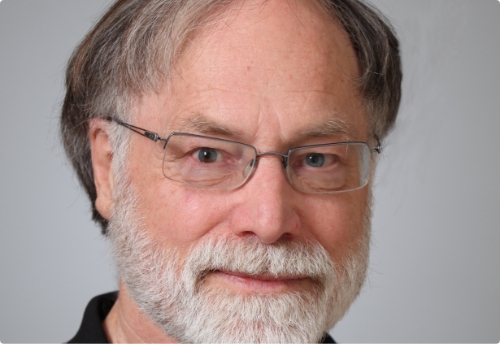
David Robinson is widely recognized as an expert on the Northern economy.
Read full bio »You will get the foundation you need to understand and promote economic and social development in Northern Ontario. You will get a focus on Northern Ontario opportunities and challenges, and you will benefit from the experience of many people who have worked to improve the north (access our collective memory). The course will help you understand the special problems and opportunities that face this region. It will introduce you to the forces shaping the people and institutions of our region. It will help you identify the strategies that can work and the ones that won’t, as well as learn from past success and mistakes.
This is the only course that deals with the special features of our region. It introduces current research from around the world and at the same time introduces actual people and places and real successes and failures. It is also the only course we know of that focuses on sustainable development for Northern Ontario to give you the tools to master the market.
Participation is limited to 20 students per semester to allow plenty of time for discussion and collaboration.
As a registered charity for educational purposes, NPI does not charge HST for course enrolments.

David Robinson
David Robinson is widely recognized as an expert on the Northern economy. He researched and
wrote about the resource-based economy of Northern Ontario throughout his 35 years teaching
economics at Laurentian University. Dr. Robinson is best known in Northern Ontario for 15 years of monthly columns on economic development in Northern Ontario Business, Northern Life, the Sudbury Star, and the Sudbury Mining Solutions Journal. At Laurentian, he taught resource economics, environmental economics and strategic thinking.
He started and ran the Elliot Lake Tracking Study, an eight-year study of 1000 workers laid off in
Elliot Lake beginning in 1990 (still the largest survey-based study of its kind). He conducted an
influential study of the Mining Supply and Services Cluster in the Sudbury Region, then lobbied successfully to have the mining supply and services cluster recognized as a central part of Sudbury’s development plan.
In 2005, he identified a shortage of design capacity related to the northern forestry sector and
initiated the creation of the new McEwan School of Architecture. The project won the Economic
Developers Council of Ontario (EDCO) Economic impact award. In 2015, he was presented with
the Community Builders Award of Excellence for Economic Development. He has also consulted for forestry communities and literally wrote the book on the Economics of Community Forestry.
- To encourage those who live in Northern Ontario to take responsibility for it, otherwise no one else will. Economic sustainability is not assured in Northern Ontario, and regional economic development is decentralized economic development.
- To help you understand our economy better, allow you to become familiar with Northern Ontario success stories, learn about economic failures that changed the history of the North, share best practices from around the world and importantly share with your fellow students from across the North important projects and initiatives in your area.
- To foster community building and linking like-minded professionals, politicians and policymakers who will determine the future of Northern Ontario.
This course is designed for:
- Municipal politicians who make or influence economic decisions in Northern Ontario and want to learn more about taking action and creating wealth.
- Economic development professionals in Northern Ontario who make or influence economic decisions and growth.
- Business owners who want to help build strong communities.
- Provincial, municipal or federal employees living in Northern Ontario who make or influence economic decisions and/or policy decisions.
Kelly Bolduc-O'Hare, Board member of Lambac & Community futures Ontario:
"It was a wonderful experience... truly focused on providing tools to create an environment of sustainable development for Northern Ontario and giving the history that has led to where "we" are now".
"First off- I want to say that I have been missing Wednesday afternoon lectures. They were great! I plan to use the information to the benefit of our communities".
Wendy Watson, Director of Communications, Greater Sudbury Utilities:
"I really enjoyed this class. It was a good investment of my time. I have no aspiration to be an EcDev professional, but from a pure personal interest perspective, it was worth it!"
"I have really enjoyed this class. Love your teaching style, and the topic is fascinating".
Tracy Amos, Manager Superior East Community Futures Development Corporation:
"I really did enjoy the course".
James Franks, Economic Development Officer:
"Overall, I have been happy with the course and have learned some things that will benefit our community. I hope that I will be able to convince some of our new Council members to take the course early in 2023 as I think they would get some real value".
Chantal Croft, Community Development Officer:
"I am sending you many thanks. For a short while I wasn’t too sure that I wanted to continue working in Ec. Dev. but you gave me tools that I do think will help me with future projects".
Josée Vachon, Business Financial Analyst:
"I really enjoyed the interaction with others".
Adele Tremblay, Economic Development Officer:
"Thanks for all the great feedback. I really enjoyed your course".
"Great course for anyone starting in the economic development field. Dr. David Robinson is very passionate and has a great teaching approach".
This course consists of 12 weekly sessions.
You will have exclusive access to a comprehensive website featuring stories and videos of people who have changed the history of Northern Ontario with their community action.
Your fellow students are actors in the northern economy. You’ll be able to learn with them, interact with them, know them and share your own lived experience across the North.
You will receive weekly e-newsletters of relevant information beyond your coursework. You will be asked to share your own observations and knowledge, and are encouraged to ask questions of your professors and interact with your colleagues.
The course curriculum is outlined as follows:
1. What do we mean by development?
- Is Northern Ontario Special?
- Megatrends: Our Future
- Challenges in local economic and social development
- Opportunities for Economic and Social Development
2. Goals
- Goals
- Carrying Capacity
3. Sustainability
- Sustainable Development and the Environment
- Becoming Sustainable
- Economic Sustainability
4. Tools
- Economic Impact Models
- Other Mainline Approaches
- Community Focussed Approaches
- Examples of successful projects
- Examples of failed projects
This 12-week course explores practical issues in sustainable economic development for communities in Northern Ontario.
- Sustainable development. A review of the basic principles with examples and applications
- Boundaries and Divisions
- Demographics
- The Francophone community and Francophone Economic Development
- Aboriginal communities and development for aboriginal communities
- Agricultural development, with a focus on the Clay Belt, climate, and financialization
- Tourism as a local driver
- Forestry, CLT, and a Wood Charter
- Mining
- Cooperatives, Credit Unions, and Communal Enterprises.
- Municipalities are where the action is
- How does change happen?
Please Note - While SNOED 101/DEDNO 101 is a prerequisite for taking SNOED 201, advanced standing is available on a case-by-case basis.
Students will have access to a unique collection of video interviews with people who have made outstanding contributions to northern Ontario development over the last 40 years. Parts of these videos are linked to the text and other parts will be played during Zoom sessions or assigned as homework.
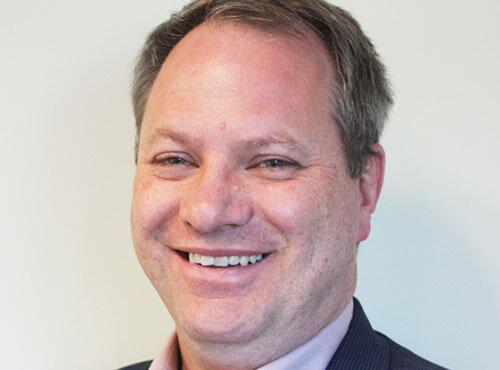
Charles Cirtwill
Charles Cirtwill is the founding President and CEO of Northern Policy Institute.
Charles’ work on education, fiscal management, debt reduction, taxation, the growth of government, and the importance of government accountability regularly appears in local, regional and national media.
He has worked in the public, private and not-for-profit sectors as a program manager, policy analyst, senior administrator, consultant and entrepreneur. Charles has also served as policy advisor to several political campaigns and has provided non-partisan advice and direction to provincial and municipal administrations across Canada.
He currently serves as a member of the Rural Ontario Institute’s Board of Directors, and he has had leadership roles in multiple community organizations including Civitas, IPAC, Scouts Canada, local school associations and local homeowners associations. He attended Dalhousie University, earning a BA in Political Science, a LLB, and a MPA with a focus on quantitative and qualitative assessment of public policy and programs.
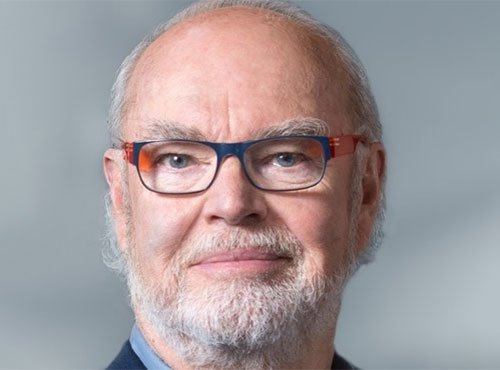
Peter Goring
Peter Goring comes from a family with strong ties to the business community in the Sudbury Region. Born in Sudbury, where he received his primary and secondary education, he graduated from Laurentian University (B.Comm 1967). After qualifying as a Chartered Accountant in 1970, he spent almost 50 years as a real estate finance professional based in Toronto, active in Canadian and US markets with several multinational entities.
Peter has maintained a keen interest in public policy issues and served in many industry and public interest organizations. He continued his strong interest in Sudbury and Northern Ontario and has served as a member of the Laurentian University Board of Governors and as a Director of the Laurentian University Foundation. Through the Goring Family Foundation, he continues to support Laurentian University and Northern Ontario issues. Other activities include an interest in Documentary Film through HotDocs in Toronto, where he is a member of the Advisory Board and a participant in HotDocs Partners which finances award winning documentary films.
Peter is a founding donor of the Sustainable Northern Ontario Economic Development distance education course.
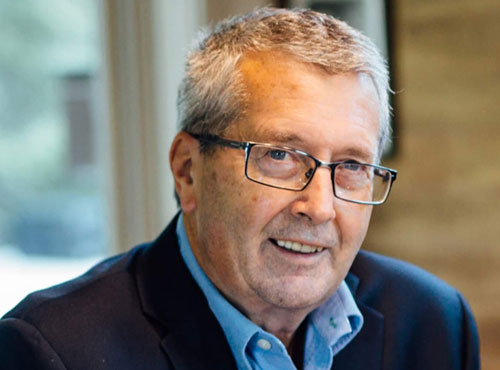
Pierre Bélanger
Timmins-born Pierre Bélanger has a varied background in both business and public affairs. This ranges from a key role in manufacturing the Boler trailer to owning and managing the Earlton RV dealership and founding the Earlton Zoo. A constant through this is Bison du Nord, the family-owned 600-acre, 300-head bison ranch.
Early 70’s activities included a founding role in franco-ontarian institutions such as the Théâtre du Nouvel-Ontario (TNO) and the Coopérative des artistes du Nouvel-Ontario (CANO).
He has served on and chaired economic development boards at the provincial and national levels. He currently chairs a local community philanthropy, the Fondation Communautaire du Temiskaming, as well as Northern Policy Institute (NPI). He also maintains a focus on regional food self-sufficiency.
Laurentian University awarded him a Doctor of Laws honorary degree in 2007. The common thread in his involvement is a search for sustainable, balanced communities in Northern Ontario. Pierre is a founding donor of the SNOED distance education course.
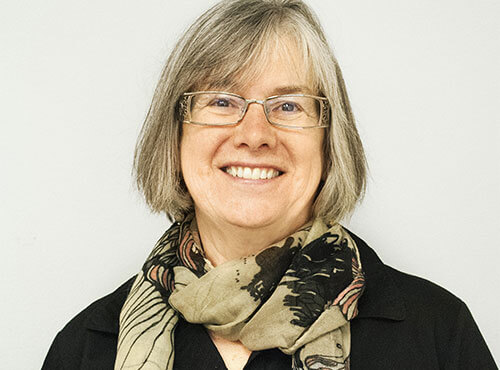
Gayle Broad
Dr. Gayle Broad is the former Director of the NORDIK Research Institute and Faculty Director of the Community Economic and Social Development (CESD) program at Algoma University in Sault Ste Marie. She was the academic lead for SSHRC-funded research on the social economy and social enterprises in Northern Ontario and most recently led a NORDIK team in the development of a social enterprise and entrepreneurial eco-system. Currently she serves on the Research Advisory Board of the Rural Agri-Innovation Network (RAIN) building relationships and capacity for wildfoods and agricultural producers in the North, and is developing a podcast on sustainable development in Northern, rural and Indigenous communities.
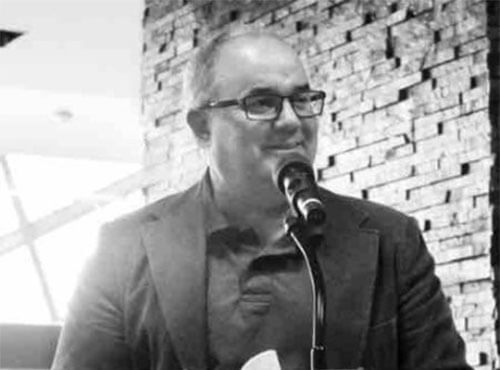
Dan Friyia
Dan Friyia was General Manager of the Superior East Community Futures Development Corporation for over 24 years centered in Wawa. Currently, Dan is the Executive Director of the Sault Ste. Marie Community Development Corporation. He currently teaches in Algoma University’s Community Economic & Social Development Program as well as the University of Waterloo Economic Development Program (EDAC). Dan is currently the Chair of the Community Futures Network for Northeastern Ontario.
Colin Lachance
Colin Lachance received his honours B.A. at Carleton University in 1983 and a Master’s degree in Environmental Studies at York University in 1986. He has been the President of Lachance Environmental for over thirty years. Born and raised in Northern Ontario, he has spent most of his career facilitating sustainable community development from a reconciliation perspective, focussing on the creation of First Nation-municipal partnerships.
Will I receive credits for taking this course?
The course earns you 10 credits of the 45 required for certification by the Economic Developers Association of Canada (EDAC).
Why do I need this course?
Building your community, deepening understanding, professional advancement, access to history and best practices.
Do you need to take SNOED 101 and 201 back to back?
You do not need to take them back to back. They are two separate courses and each will be offered at least once a year. If you choose to take SNOED 201 later, it can be in any subsequent offering.
When will we get more information after registering?
About a week before the course start date an information package will be distributed.
What is the format of the course?
Synchronous sessions will be held via Zoom. Within the three hour Zoom sessions is two hours of lecturing and one hour of discussion or guest speakers. Outside of the virtual classroom students are expected to complete assignments and read the textbook.
Does this course have assignments or is it strictly teaching and discussions?
Yes, this course does have assignments.
What are the assignments and how long is the expected amount of time devoted to these evaluations?
Each week a multiple choice chapter quiz will be assigned. The quiz should take you approximately 20 minutes to complete.
Due at the end of the course is a 10 page paper on a project of your choice. This may take approximately six hours to complete, and prior to this you may spend 30 minutes to an hour getting a consultation about your chosen project with the professor.
Where do I find my receipt after registering?
The receipt can be found in the confirmation email near the bottom.
Where does one find course materials?
Course materials can be found on the Google Classroom and Snoed portal (textbook, syllabus and course recordings).
Who do I reach out to if I have a question after registering?
Please send all further questions to Paula Haapanen (phaapanen@northernpolicy.ca) and she will answer them or direct them to the appropriate person.
What if I have to miss a class?
Course sessions will be recorded and uploaded to the Snoed portal within 24 hours of the session.
What is the refund policy for these courses?
Our course features limited registration. As a result, cancellations present a challenge. As a result this is our cancellation protocol.
- Cancelling your course registration 4 weeks prior to a course start date is subject to a full refund less a $100 penalty for processing. Students may leave their registration and funds in place to be used by themselves or anyone else in their company or organization for one year.
- Cancelling your course registration within 4 weeks of the course start date is subject to a 50% penalty or held on credit (no fee) for another course offering that can be used by anyone in the company/ organization for 1 year.
- Cancelling your course registration within 1 week of course start date attracts a 100% penalty. A credit may be held in the student's name (no fee) for another course offering and can be used by anyone in the company/ organization for up to 1 year but is not subject to a refund.
- Once the course has begun no refunds shall be made but a credit may be issued for a future course if there is an unanticipated personal emergency restricting the student from attending the course.
A special thanks to our key partners who have helped to build and market our Sustainable Northern Ontario Economic Development course.
Village Media: Headquartered in Sault Ste. Marie Ontario, Village Media owns and operates more than 20 digital community news sites in Ontario and empowers more than 100 other local news sites around the globe with their technology, programs and support. Jeff Elgie the president of VM has been a founding supporter of SNOED. VM has provided technology and marketing to our group.
FONOM: The Federation of Northern Ontario Municipalities (FONOM) is the unified voice of Northeastern Ontario, representing and advocating on behalf of 110 cities, towns and municipalities.
FONOM supports SNOED with direct marketing to their members.
NOMA: The Northwestern Ontario Association (NOMA) is composed of members from the Kenora District Municipal Association, the Rainy River District Municipal Association, the Thunder Bay District Municipal League and the City of Thunder Bay. The area represented extends from the City of Kenora in the west to the Town of Hearst in the east.
NOMA supports SNOED with direct marketing to their members.